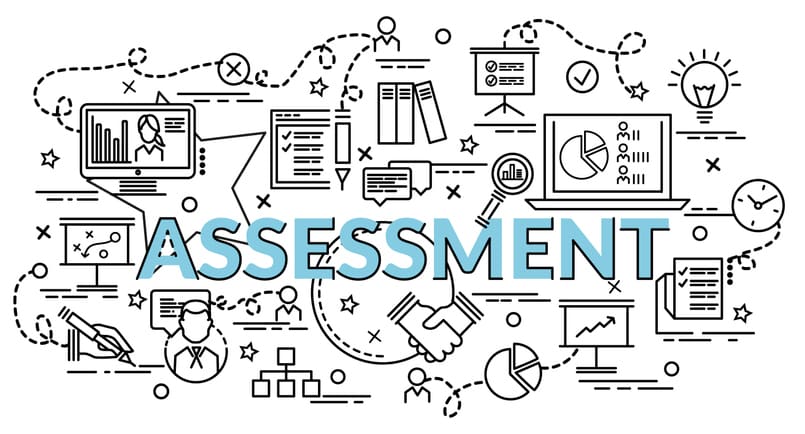Introduction
There is more to you than your CV can convey. When you are being considered for a job, the hiring company needs to know if you are a good fit for its work culture and organizational style. Knowing about your experience, skills, and achievements is not enough as it does not reveal much about your deeper psychological values and behaviour. This is where psychometric testing comes in, which is used in combination with other methods in the selection process.
Psyche and measure combine to form the word psychometric, translating into ‘measure of the mind.’ Some forms of psychometric tests were introduced way back in the 1800s by Sir Francis Galton and have seen several improvements over the centuries.
What are Psychometric Tests?
Psychometric testing is an activity carried out to evaluate a candidate’s behavioural style, mental ability, cognitive skills, traits, aptitude, and other aspects of their personality. These tests use sophisticated scientific tools to objectively assess a candidate’s potential for a role within the organization.
The popularity of these tests has grown due to several factors, fairness and objectivity being the most important ones. While a recruiter may be able to gauge a candidate’s personality to an extent through an interview, a bias cannot be ruled out. Irrespective of the gender, religion, or background of the candidate, these tests remain unbiased. Psychometric tests have three fundamental characteristics that ensure their usability for different roles.
Norming
Norming is an agreement that there is consistency and objectivity in the administration and scoring of the test. The test is conducted in similar conditions. For example, all those who take the test would do so online in a quiet room. It would be inconsistent if some of the candidates took the test in a noisy office lobby and others in a disturbance-free room.
The scores of candidates appearing for the test are compared with that of a sample of people representing the tested ones. The comparison is within the context of the role.
Reliability
The tests are considered reliable if they produce consistent results with accuracy in scores. If the results vary every time a candidate appears for the test, then the reliability of the test would be doubtful. There are multiple factors influencing a variation in results like the difficulty level or ambiguity of questions, administration of the test, guidelines to complete the test and errors in the scoring system. As mentioned in ‘norming,’ the environment where a candidate appears in the test can also impact the scores and reliability of the test. In some cases, the candidate may give answers that they think would reflect well instead of their actual choices.
Validity
This quality of the test ensures proper measurement of all that it is designed to measure. It should provide meaningful insights into the candidate’s ability being measured.
Also Read: Top 10 Telephone Interview Questions you need to know
Types of Psychometric Tests
Psychometric assessments are used to measure a range of competencies in a candidate to understand their suitability for a role. The tests can be classified into two types – personality tests and ability or aptitude tests.
Personality Tests
The main aim of these tests is to assess the traits, interpersonal skills, task management, time management, and behaviour of the candidate. They provide insight into the personality of the candidate, their interests and values allowing the employer to determine the suitability of the candidate for a particular role.
Some tips that may help you give an optimal performance are:
- There are no wrong answers, so be yourself while answering the questions. Faking a personality test may cause more problems than solutions. It may also land you a job that is a mismatch with your personality. So, the best strategy is, to be honest and not be afraid of choosing an answer that matches your personality. Sometimes, candidates tend to be neutral in their choices. This will reflect on your personality and give away that you are playing safe. Having said that, you do not have to choose extreme responses all the time.
- Keep the requirements for the role in mind. This works as a guideline for you to correlate your strengths with those required for the role.
- Keep a check on your temptation to mark the best answer as per the demand of the role. While you should highlight your strengths, the employer will notice them in your responses if you stick to selecting the ideal answer for every question.
- Consistency is the key, and your answers should reflect that. Some tests carry different forms of a question to check your truthfulness. If you make up responses, your answers may look inconsistent. Read the questions properly and be consistent with your responses.
Aptitude Tests
These tests measure the candidate’s intellectual ability, critical thinking and problem-solving skills. Some examples of aptitude tests are – verbal tests, numerical tests, situational tests, inductive reasoning and Watson Glaser tests.
Some tips to do well in the aptitude tests put together for you:
- Be prepared to answer questions related to the core skills required for the role you have applied for. If some of your weak areas need attention, it would be best to address them.
- Practice leads to perfection. So, find tests online and get down to practicing as many as you can. Try different formats that may be specific to the role or the industry you are interested in. An aptitude test could have numerical or verbal reasoning. You can use practice tests to get acquainted with the approach required for each test type.
- While practice will help you build your pace to solve all the questions, make sure you are fresh and well-rested before the test to maintain your focus till the last question. Also, pay attention to the food you eat before the test. Eating too little or too much may work against you.
- There can be tricky questions that may keep you engrossed for longer than you’d like. If you feel that you are not getting closer to an answer, it may be wise to move to the next question.
- Even if you do not feel confident about your answers, don’t lose hope, as this test alone will not be the deciding factor for your job. If you get nervous, you may not be able to solve the questions that you could have otherwise.
- Instead of skim-reading, you should read the questions carefully. Sometimes questions may seem similar but check for variations before you answer to be sure.
- Follow all the instructions given in the test.
The recruiting company may organize the test in their office or let you do it online at home. They may even hire a third-party test administrator to conduct it. The duration of the tests may vary but the usual duration is about 20 minutes. Some tests may last much longer.
Scoring in Psychometric Tests
Psychometric tests have a standardized scoring system presenting results in a straightforward manner. The score you get is known as the raw score. But for it to be meaningful, the score should let the employer know how good or bad you are in comparison to others.
Raw scores are comparable with a benchmark score representative of the group of candidates taking the test. For instance, if you apply for the position of software developer, your score is compared with other software developers working at a similar level. This comparison helps employers gauge your strengths in comparison to others in similar work profiles.
This is presented as a ‘percentile,’ providing an insight into your performance in relation to the representative group. So, if you scored 85 percentiles, then, out of the total number of candidates who appeared for the test, 85% scored less than you. Also, note that 85 percentiles do not mean that you got 85% answers right. Your raw score and percentile score are not correlated.
The percentile/comparison scores vary as per industry and roles, so there is no universal benchmark of an exceptional or good score.
After the Tests
Once you have received the score, you may also receive feedback. You must use this feedback constructively. Psychometric tests are designed to suit the concerned organization so that the candidate’s profile can be matched to the role, ensuring a win-win for both – the candidate and the organization. They use the score to get an insight into your abilities and future potential.
As mentioned earlier, psychometric testing alone is not a make-or-break factor in your quest for the role you seek. Employers use it to screen candidates in combination with their interview responses, CV, references, and other information.
You may have to appear in a psychometric test as an employee. This is sometimes seen when companies use psychometric testing to realign their team members as a step to optimize operations. Irrespective of when you appear for such a test, it’s important that you take them positively as they are used to identify your strengths.
Great Learning offers several free courses in the technical and business domain that can help you achieve your career goals.






